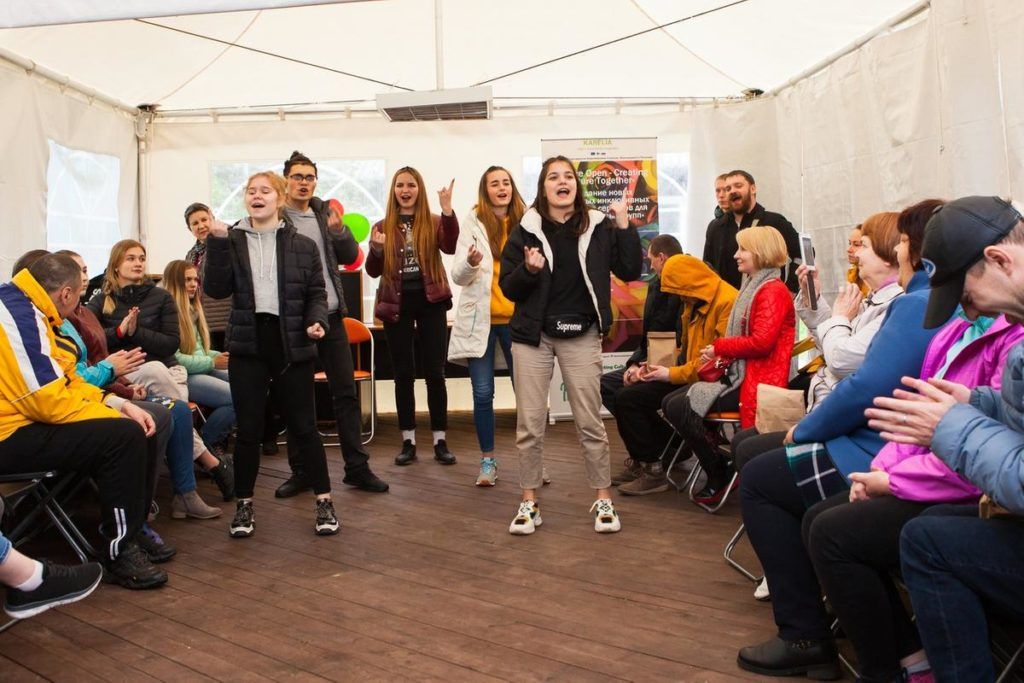CULTURE OPEN – Speaking the unique language of culture
“Culture is probably the best way to integrate migrants and people with disabilities in our cities. There is no need to speak. People usually dance and sing about the same things. Culture is the best way to reach someone’s heart and build trust”. Migrants and people with disabilities are two quite different types of groups. They have different needs and concerns. However, they often face the same challenges: the feeling of isolation, feeling unheard or not integrated in society. Culture Open is a project, financed under ENI CBC Karelia programme, that aims at engaging socially vulnerable groups in the cities of Petrozavodsk (RU) and Joensuu (FI) by making them feel the protagonists in the cultural life of the cities.
Joensuu and Petrozavodsk are sister cities, their cooperation experience goes back 25 years in time. The two cities are culturally vibrant, they organise multiple events and the doors are always open to everyone. However, people with disabilities, and also migrants, are too often left behind the cultural scene. In Petrozavodsk, there is a large group of migrants coming from the former soviet socialist republics who migrate to work in construction and related services, and do not understand the language. In Joensuu, the migrants’ community presents several dozens of nationalities. In both cases, they face similar problems: inefficient information accessibility, poor active engagement and lack of sustainable tools that provide the conditions to attract and make socially vulnerable groups enjoy and participate in the cultural life.
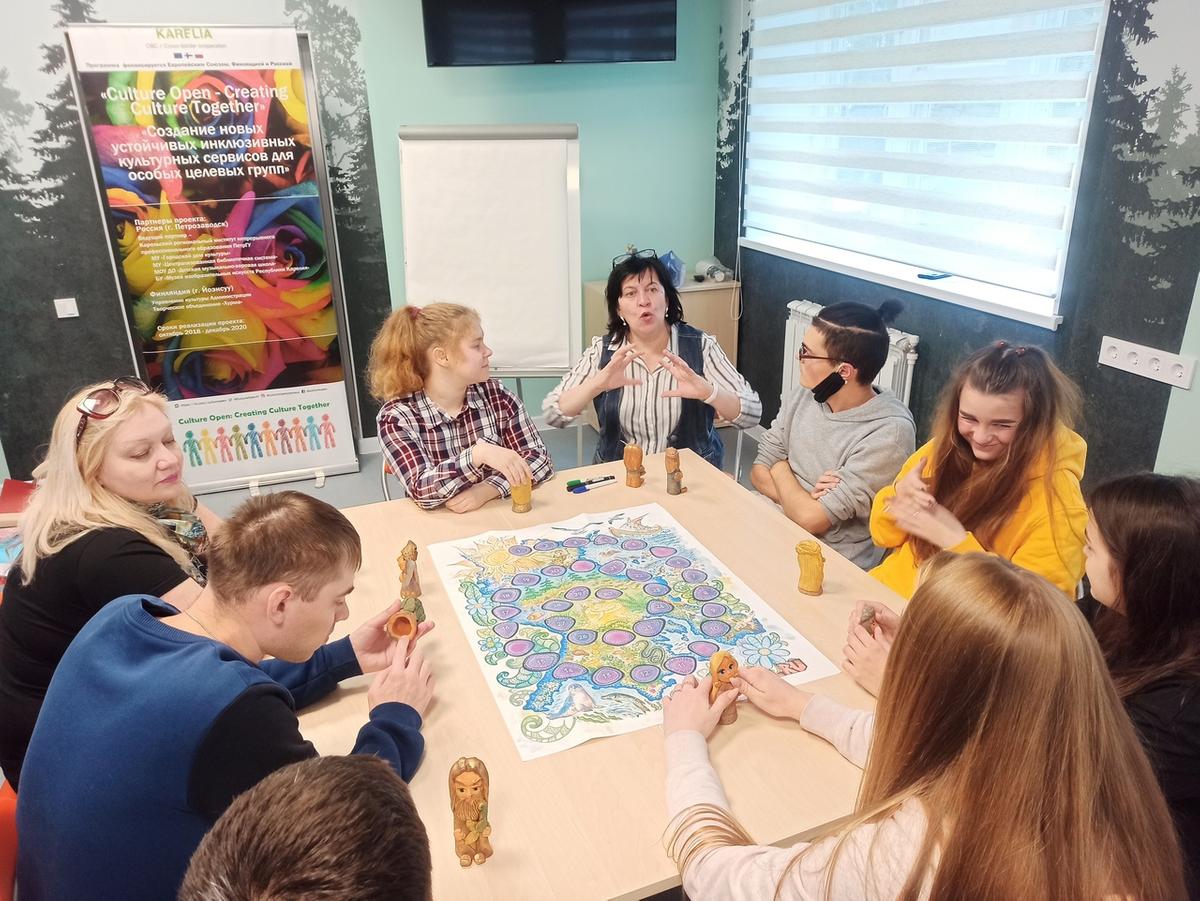 The solution for Culture Open is clear: a co-creation model through which migrants and people with disabilities can be actively involved in the organisation of the cultural events. “They take part in the preparation stage, in the development phase and the implementation. They help the organisers develop the performance or the exhibition from their point of view, and then, they take part in it and show their talents. They become the culture provider”, says Elizaveta Druzhinina, project manager of Culture Open.
The solution for Culture Open is clear: a co-creation model through which migrants and people with disabilities can be actively involved in the organisation of the cultural events. “They take part in the preparation stage, in the development phase and the implementation. They help the organisers develop the performance or the exhibition from their point of view, and then, they take part in it and show their talents. They become the culture provider”, says Elizaveta Druzhinina, project manager of Culture Open.
At the very beginning, the Russian project team participated in Parafest festival – an event which takes place every year in Joensuu focusing on artists with disabilities. The festival is organised in small groups and different performances are constantly taking in place in every corner of the city. “The atmosphere was cosy, interesting things were happening everywhere and it was very inspiring”.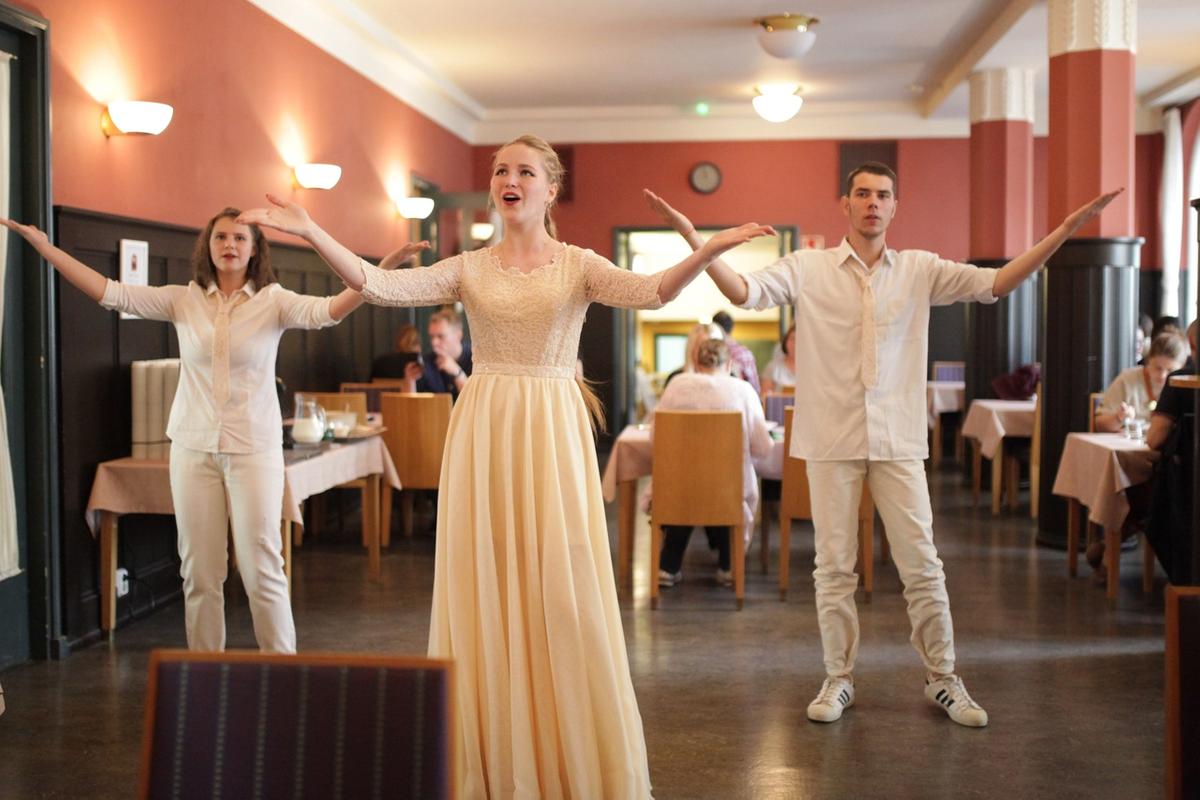 A group of Russian teenagers with disabilities from Petrozavodsk participated in the festival and showed their talents, some sang, others played the saxophone… “It was a real pleasure to see the reaction of their friends from the audience and also to see how the artists were so nervous at the beginning and then so happy in the end”. It was a format unknown to Russian audiences – which are used to big crowds and competitions – and worth sharing and implementing with the cultural providers in Petrozavodsk. Consequently, more activities have been organised on the Russian side, in a true cultural exchange.
A group of Russian teenagers with disabilities from Petrozavodsk participated in the festival and showed their talents, some sang, others played the saxophone… “It was a real pleasure to see the reaction of their friends from the audience and also to see how the artists were so nervous at the beginning and then so happy in the end”. It was a format unknown to Russian audiences – which are used to big crowds and competitions – and worth sharing and implementing with the cultural providers in Petrozavodsk. Consequently, more activities have been organised on the Russian side, in a true cultural exchange.
On the other hand, Culture Open organized at the library of Joensuu a photography exhibition with photos made by migrants: they could show through their lenses the way they see North Karelia’s nature and surroundings. The library also organised several workshops to teach the basics of photography 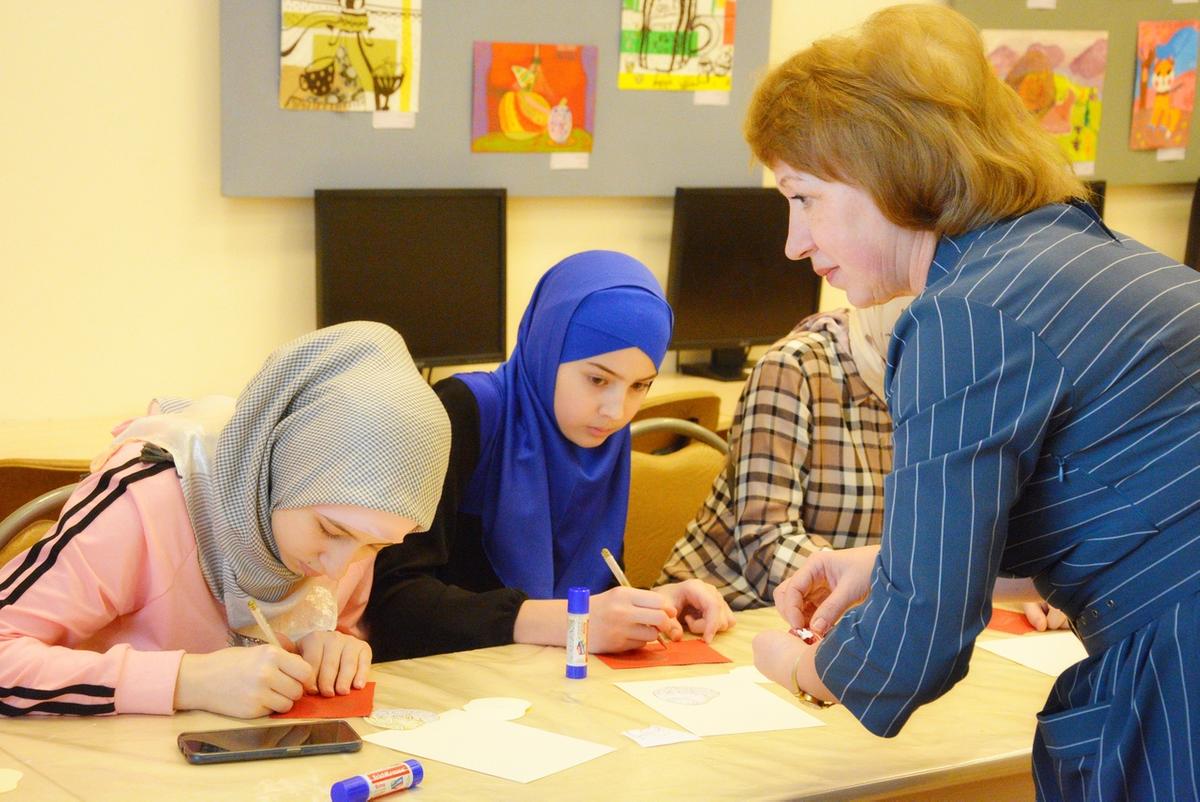 while facilitating the interaction between the migrants and the native Finns. The same concept will now be implemented in Petrozavodsk, where the project is targeting girls with migrant background through the organisation of handicraft classes in the Museum of Fine Arts of Karelia, and a series of masterclasses on Finnish and Karelia poetry. While these workshops were born under the project-umbrella, they will now form part of the permanent programme of the cultural facilities. “The museums and the libraries become cultural clusters: people not only come to see or read, but also get involved in doing something”, explains Elizaveta.
while facilitating the interaction between the migrants and the native Finns. The same concept will now be implemented in Petrozavodsk, where the project is targeting girls with migrant background through the organisation of handicraft classes in the Museum of Fine Arts of Karelia, and a series of masterclasses on Finnish and Karelia poetry. While these workshops were born under the project-umbrella, they will now form part of the permanent programme of the cultural facilities. “The museums and the libraries become cultural clusters: people not only come to see or read, but also get involved in doing something”, explains Elizaveta.
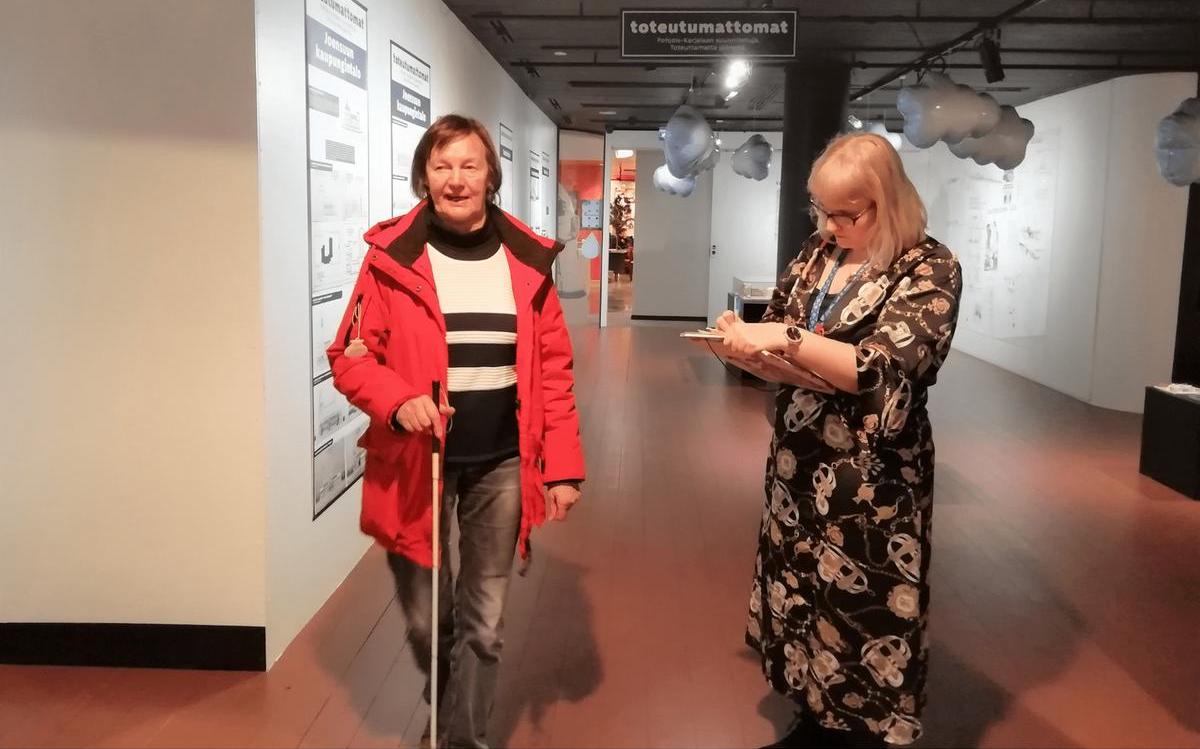
Another key aspect of the project is the removal of physical barriers to cultural facilities. The project partners selected 6 objects in each city (libraries, museums, theatres…) and a group of experts – formed by people with disabilities and different impairments – went to try the facilities themselves, the corridors, the stairs, the toilets, etc. Thanks to the experts, the project could map the accessibility conditions of the buildings, issue recommendations and include already some infrastructural changes and improvements.
Accessibility also means having access to information. The project organised several workshops to teach professionals from the cultural sector how to make their events reach everyone, including marginalised groups. “Creating a video, or using social media can make a difference, and we have taught them how to do this from the technical and content point of view”. The project manager also explains that when the Covid-19 pandemic burst out, all activities had to be turned into digital. A Parafest event was organised live online, where Finnish and Russian partners joined forces. “This went really well. However, it was evident that cultural professionals do not know how to use IT at their best. We realised there was a niche there and that we should look into more opportunities to use technology in the cultural sector. We have revised our plan, purchased high-quality equipment and started working on it”, says Elizaveta.
The project has already shown very positive outcomes. For the project manager, the most valuable one is that parents and relatives of the participants are asking for more activities. Culture Open has become a platform to which people refer to, meeting each other and connecting through culture. This platform has now two legs, one in Petrozavodsk and another one in Joensuu: and it is definitely more stable.
